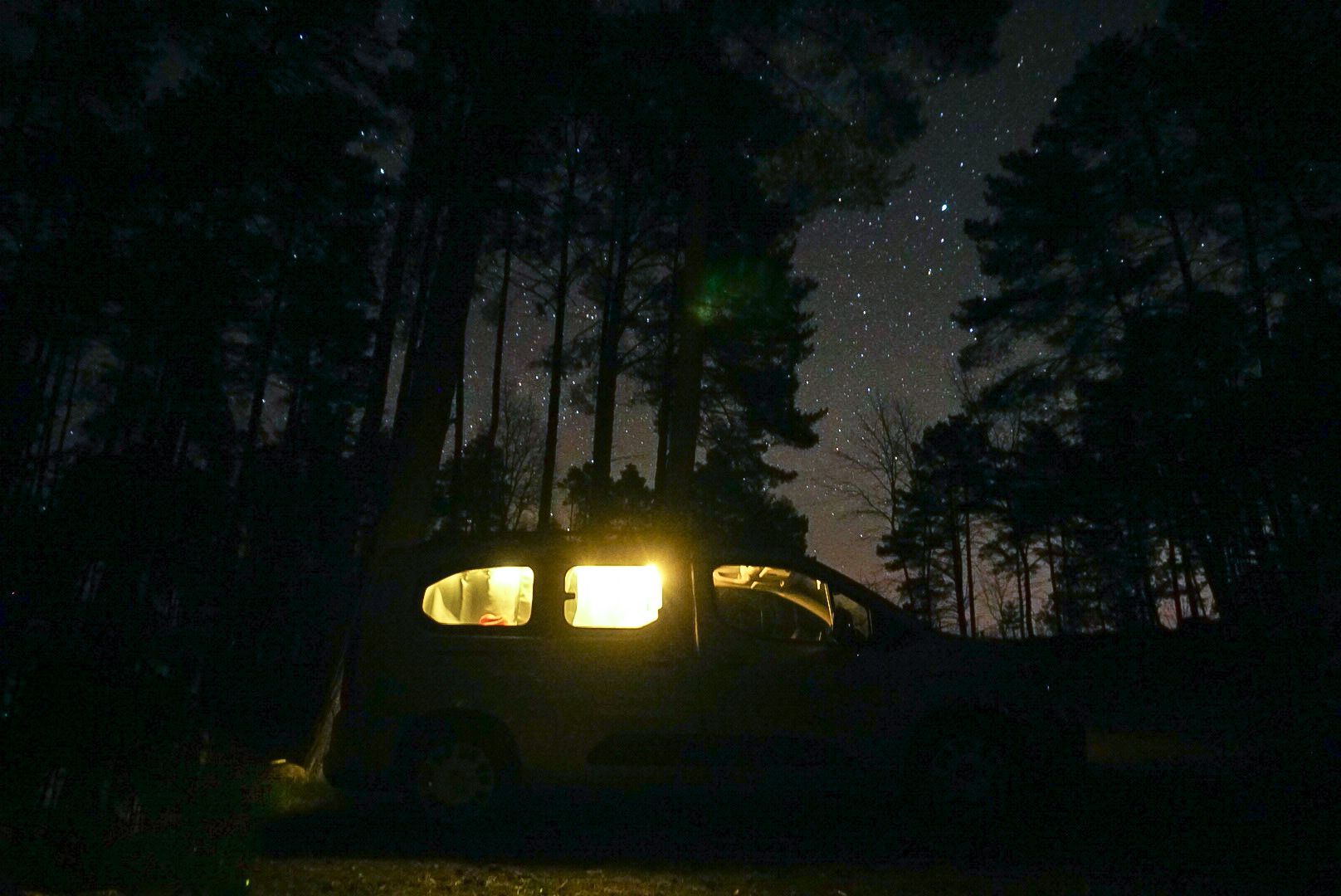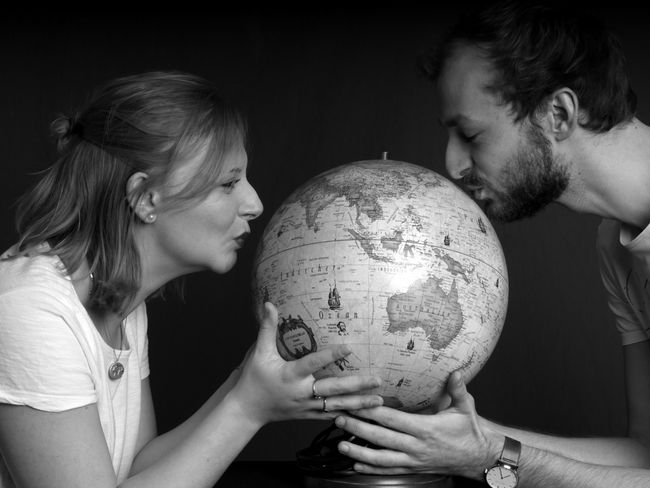On coffee tour with Peter Lustig - Pakse, Paxong, Champasak
Argitaratu: 07.02.2018
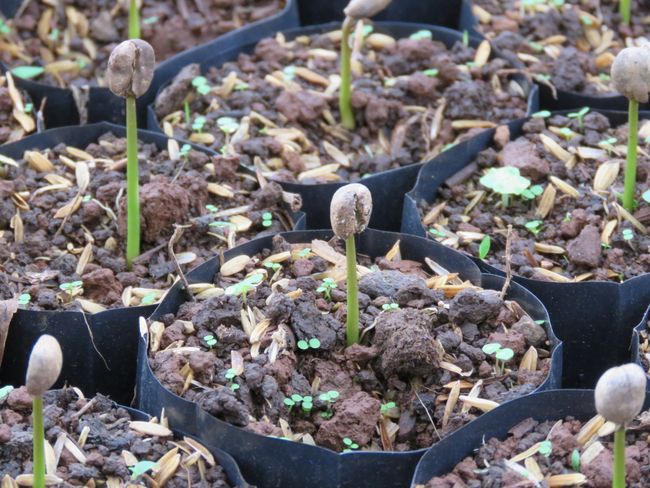
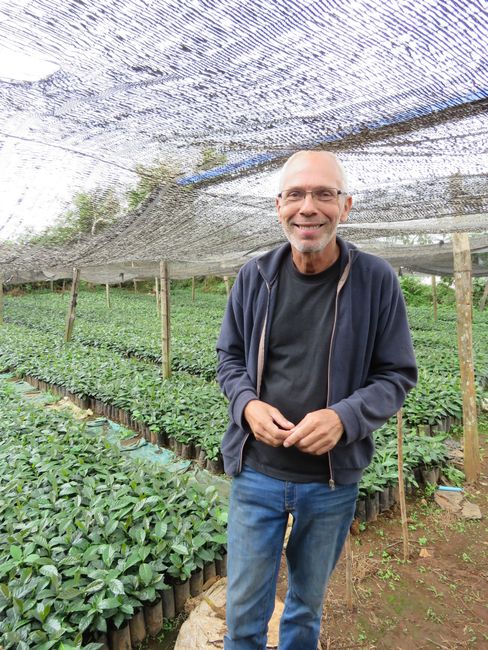
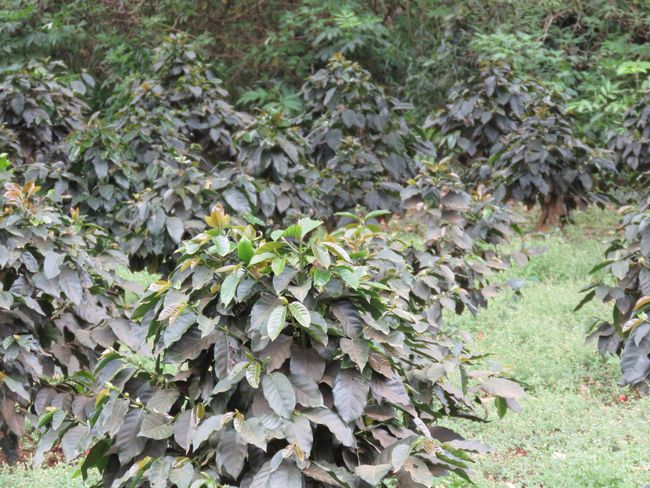
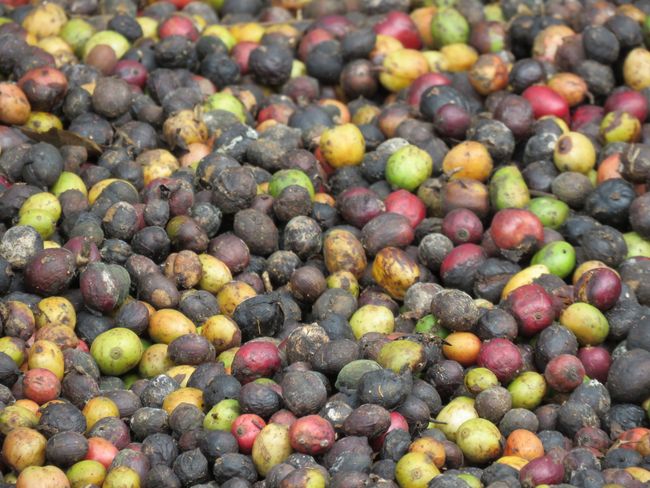
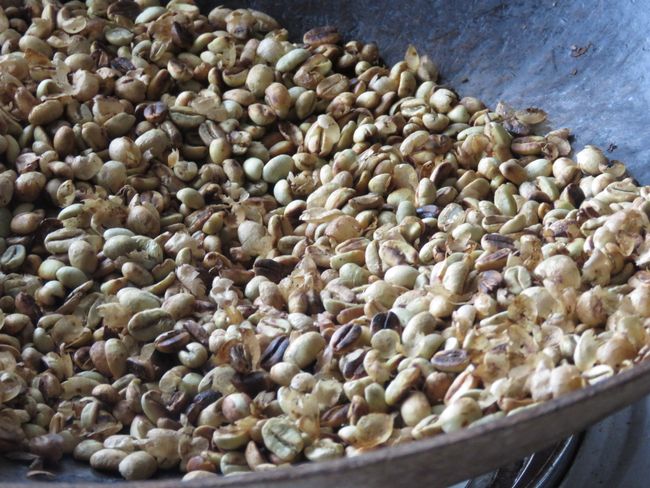
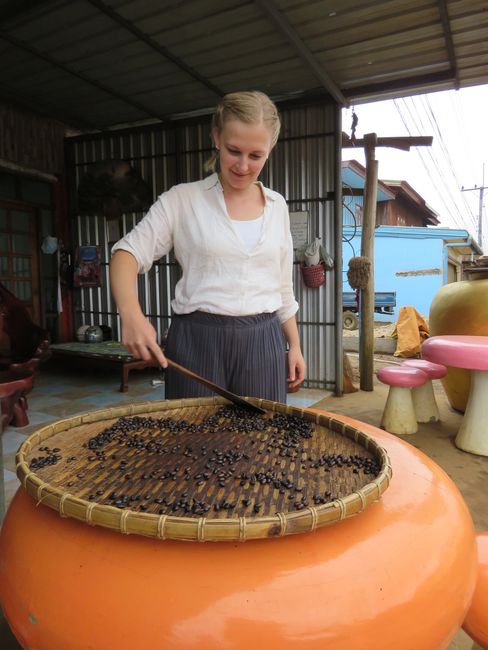
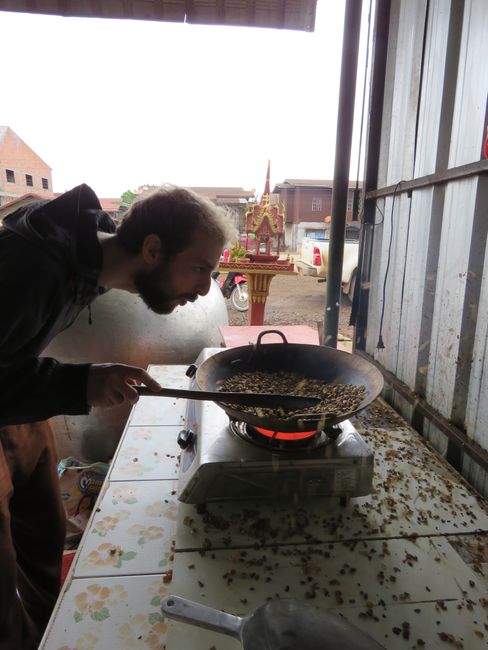
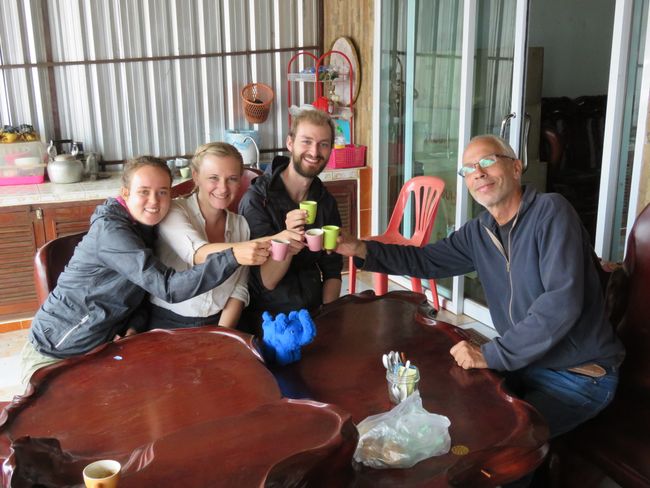
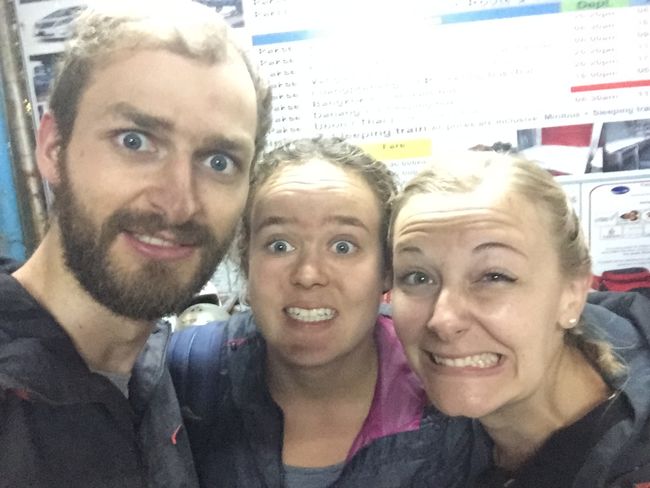
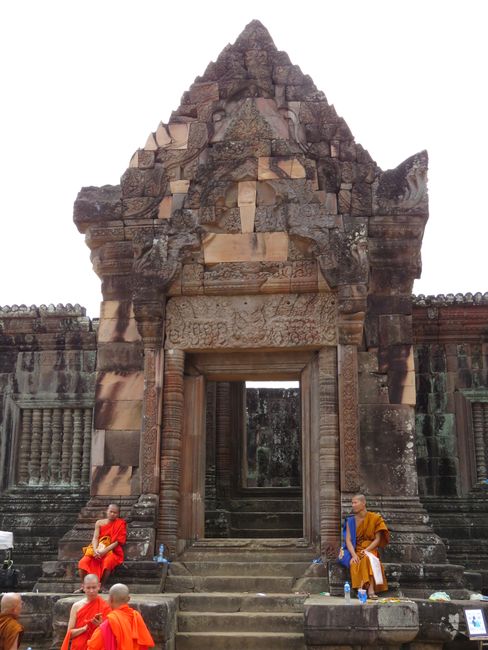
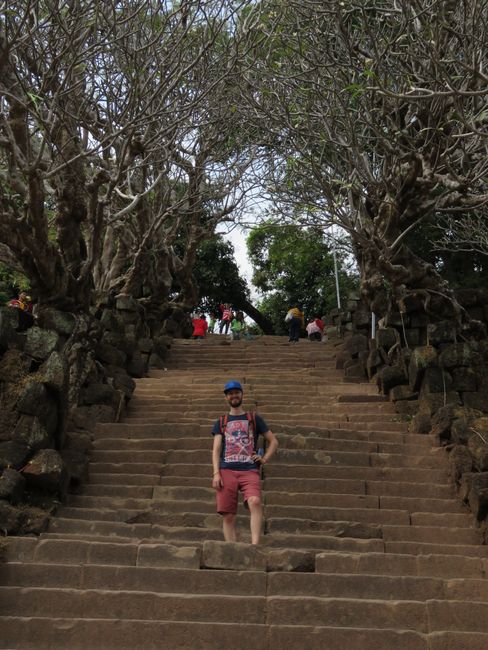
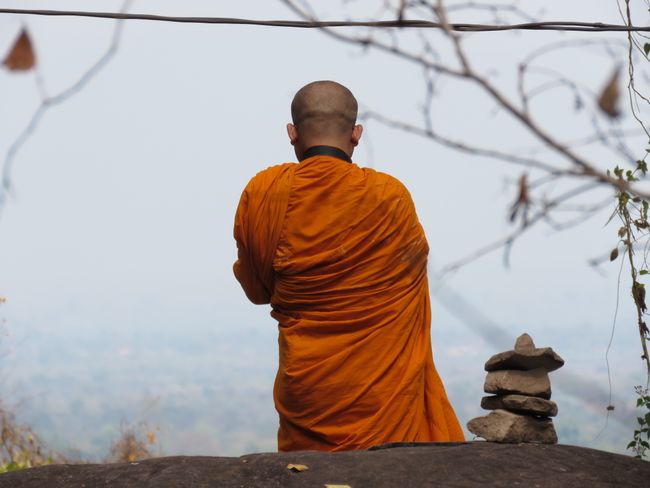
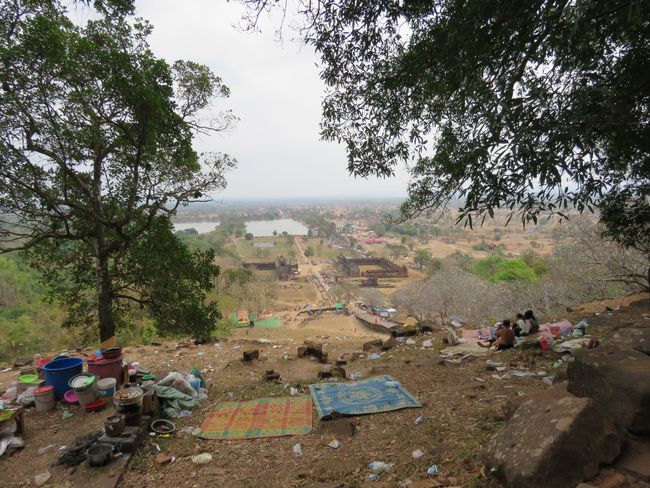
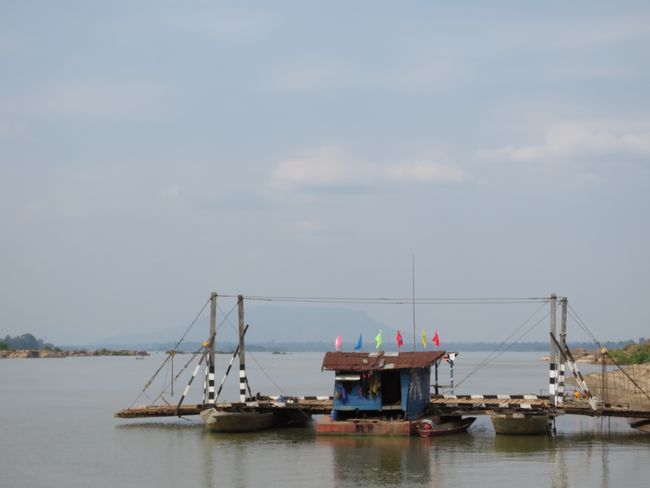
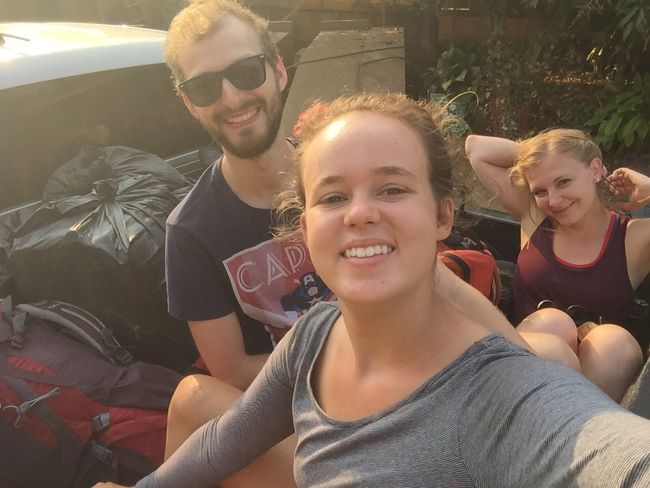
Harpidetu Buletinera
During dinner in Pakse, we tried a Laotian sausage for the first time, which is made very spicy with chili and ginger. Quite delicious!
Pakse is located on the edge of the Bolaven Plateau. This is relatively high and has volcanic rock, which is ideal for coffee cultivation.
Therefore, in the evening, we looked for a way to book a coffee roasting workshop for the next day, which we had read about in a blog. However, only the classic tours for tourists were offered everywhere. Finally, we contacted the "organizer" through a WhatsApp number and actually managed to go there the next day.
After informing ourselves about transportation options, we reluctantly took a scooter again. We had planned generously for the 50 km, as Mr. Koffie, the organizer, had warned us about the bad road. This turned out to be more than bad, as swirling dust obscured the view, the road was either muddy, full of potholes, large pebbles, or very narrow without lanes, making it sometimes impossible to drive faster than 20 km/h.
Nevertheless, we arrived fifteen minutes late, which didn't bother the relaxed Mr. Koffie, an emigrated Dutchman, much. He made us the first of many fresh coffees. Gradually, the casual conversation turned into a tour of the small plantations. Here we learned everything about the appearance, the required soil, the cultivation, and the further processing of coffee that could be learned about in two hours. We felt like we were in Löwenzahn, also because Mr. Koffie looks a bit like Peter Lustig. After a lunch, we continued with the roasting workshop, which only three of us attended. In a wok heated to about 200 degrees, we alternately roasted the green beans until they had a nice coffee-brown color. We then immediately tasted the freshly roasted coffee and proudly took the first sip of our own coffee... and it actually tasted ;)
At just after 4, we headed back to Pakse so that we could return the scooters before darkness and find our new guesthouse.
The next day, we set off with our backpacks to the big market in Pakse, from where local buses (which are more reminiscent of large tuk-tuks) departed towards Champasak. At the market, we stocked up on delicious sesame balls filled with coconut, half a banana trunk, and water for breakfast/supplies for the day. In the bus, we met a friendly Japanese couple who mistook the three of us for siblings. They told us that with this bus, you could even go all the way to Wat Phou Champasak and that there was a big festival there today. Wat Phou is one of the most important and oldest temples in Laos, a UNESCO World Heritage Site, and dates back to the Angkor period. So this was our destination anyway.
After seemingly driving every local to their doorstep with the bus, we eventually arrived at Wat Phou. Fortunately, due to the Wat Phou Festival, we could enter the premises for free and save the €5 entrance fee. We could even leave our heavy backpacks in the adjacent museum. So we made a small donation and off we went. The festival, which was in its last day, instantly dampened our enthusiasm: the entire huge area was covered with heaps of garbage, which you can't even imagine at the largest festivals in Germany... there were stalls everywhere, like at a large night market, monk "chants" were blasting through speakers across the entire area, and there was not a single quiet or clean spot to be found.
Wat Phou is actually located very beautifully at the foot of a mountain, some parts of which you had to climb to visit. Because of the unpleasant circumstances, we unfortunately couldn't really enjoy the facility and could only imagine what it would have looked like without the garbage. We just hope they will clean it up...
Since there was no bus to the 4000 Islands, our next destination in the far south of Laos, we tried a means of transportation that was new to us but recommended by many backpackers: hitchhiking! So we first let ourselves be taken to the "ferry" by tuk-tuk, as Champasak is on the "wrong" side of the river. If you now imagine a ferry like on Lake Constance, you are unfortunately wrong. Here it is rather three simple boats that are tied together and covered with wooden planks. Nevertheless, two cars and a few people fit on them. Our plan was to first get to the nearest main road in the hope of better chances of getting a ride to the south. But then things went differently when Georgi simply asked one of the drivers on our ferry where he was going. And since he was actually going in our direction, we could sit on the loading area of his pickup truck. So we made good progress and soon arrived at the exit to Nakasang, the place for the ferry to the 4000 Islands. At the exit, we started walking as it was only about 3km to the town. But then a bus with people who had just returned from canoeing passed us, thumbs up, we hopped on, and off we went to the ferry. So definitely give hitchhiking a try ;)
Harpidetu Buletinera
Erantzun
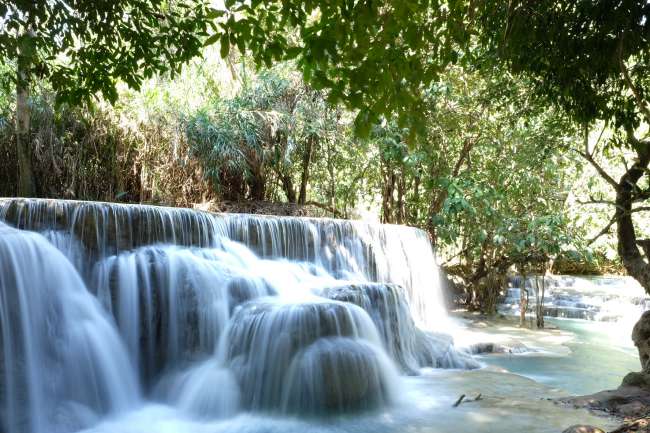
Bidaien txostenak Laos
